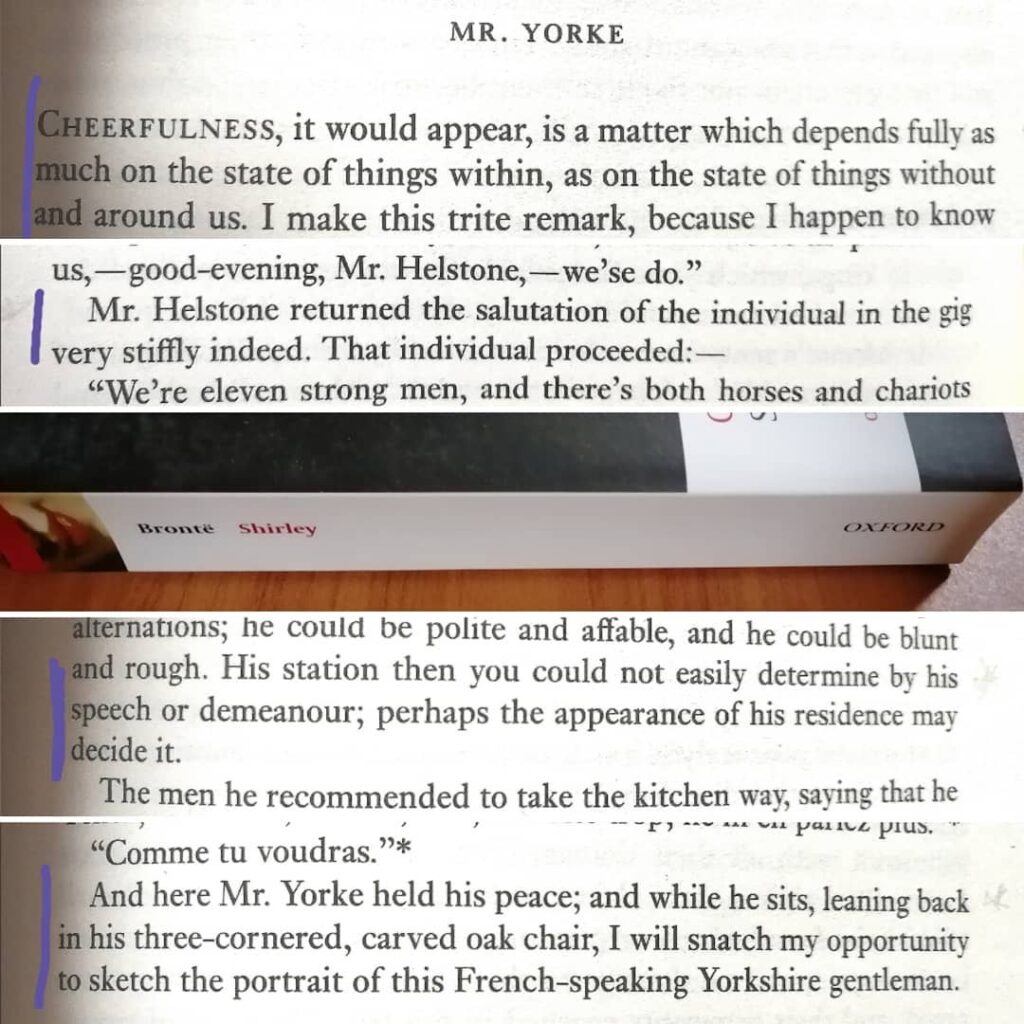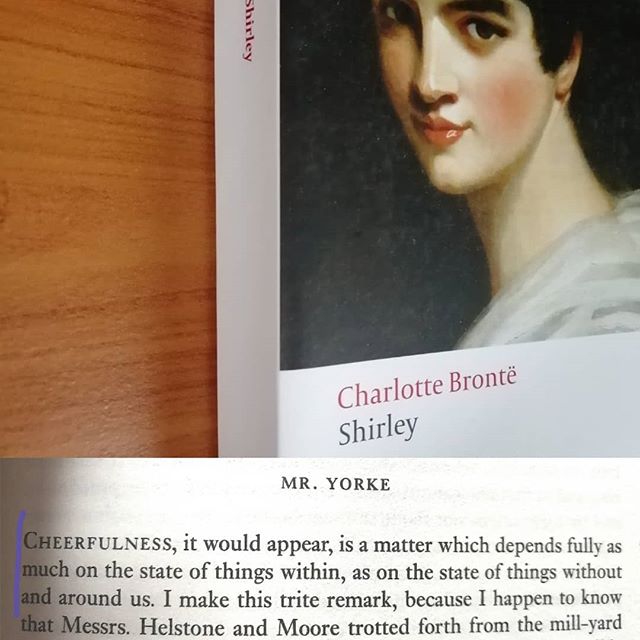If you read the last lesson post (part 1), you may be wondering when and how you should alter typical word order in your English writing to achieve emphasis.
THE ‘WHEN’:
✏️ Firstly, you should only rearrange word order when you want to emphasise one point in the sentence over the rest (as shown with examples from Charlotte Bronte’s Shirley (1849) in the last lesson post here). Don’t fall into the temptation to overuse it because, unless you are penning some descriptive fiction, you will sound overly formal and convoluted.
On the other hand, changing word order for emphasis works very effectively in writing that is intended to be read aloud. This is because a good reader will tend to pause or stress certain words audibly, and if you provide them with a text that you prepared where an emphasis is clearly marked out by the word order, they will be able to communicate this effectually.
THE ‘HOW’:
✏️ The next question is: how do you rearrange a sentence’s word order for emphasis without changing its meaning completely or even writing something grammatically incorrect?
I believe that the best method, as always, is the most intuitive one. I just mentioned above how we should only change word order for emphasis sparingly. That means that if you, the writer, know that there is something very particular you want your readers to consider in your writing, then you will try changing the word order to highlight that point.
That decision-process also stands behind how you then write a grammatically sound, emphatic sentence: 1) you begin by identifying what you want to stress, 2) write it in a small clause and then 3) move that clause either to the opening or end of your sentence.
Make sure that the rest of the sentence – the part without any emphasis – reads coherently as a main simple sentence on its own (note: your emphatic clause may still function as the noun/subject of that main simple sentence). You may need to reword the verbs in the sentence from an active into a passive voice (more on this below).
👉 Punctuation is also key: as we mentioned in the last lesson post, if your emphatic clause is positioned at the opening of the sentence, it is usually followed by a comma; if at the end of the sentence, it will be written written without any comma separating it from the rest of the sentence.
Take the following line I have written (inspired by Charlotte Bronte) as an example: we will assume that I want to emphasise the underlined parts of the sentence:
He had no taste for what was ordinary, being thoroughly original himself: he always accepted a racy, rough character, high or low; he was adverse to any refined, insipid personage, however exalted in station. – Joyce
Now compare it with Bronte’s line:
📙 ‘Himself thoroughly original, he had no taste for what was ordinary: a racy, rough character, high or low, ever found acceptance with him; a refined, insipid personage, however exalted in station, was his aversion.’ – Charlotte Bronte, Shirley
She even phrases part of her sentence in the passive voice, just to emphasise all the more the dynamism of the underlined parts. This is a common occurrence: about half of all emphatic sentences are rephrased in the passive voice.
Here is another example, where she wishes to emphasise the terrible weather on a particularly dark night:
You would think a drizzling night, [and] a somewhat perilous expedition, were not circumstances calculated to enliven those exposed to the wet and engaged in the adventure. – Joyce
📙 ‘Yet a drizzling night, a somewhat perilous expedition, you would think were not circumstances calculated to enliven those exposed to the wet and engaged in the adventure.’ – Charlotte Bronte, Shirley
I will close here with a short line that I have written (again inspired by Charlotte Bronte) and now you can try to rephrase it yourself in a way that emphasises the underlined section. You can compare it for accuracy against Charlotte Bronte’s own line (scroll down below the photograph) now that you understand the principles of emphatic writing word order – good luck!
✍️ P.S. If you feel you need more guidance and practice in applying what we have covered here, feel free to contact me for a lesson (via the query form here) to clarify your questions.
He carried his preferences on these points to an extreme … – Joyce

📙 ‘His preferences on these points he carried to an extreme …’ – Charlotte Bronte




